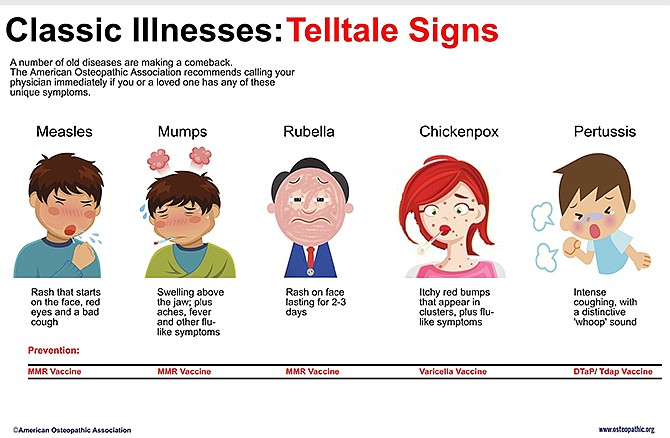NEW YORK (AP) - A boss who's worried about an outbreak of measles in the workplace needs to tread lightly.
Reports of a growing number of measles cases have employers wondering what they should be doing. But federal and state laws can limit their ability to require workers to be vaccinated. And it may be risky to even ask staffers whether they've gotten a measles or other type of vaccination.
News about a measles case in the New York City area has clients calling human resources provider Alcott HR Group seeking advice, says Bob Byrnes, director of risk management with the New York-based company.
"They're asking, what can they do? Can they go up and ask people if they're vaccinated, or if their children are," Byrnes says.
Some questions and answers about measles and the workplace:
Q. Can an employer require workers to be vaccinated against measles, or any other disease?
A. Legally, an employer can tell workers they must be vaccinated, but doing so puts them at risk for lawsuits under federal and state laws designed to shield workers from discrimination and protect their privacy.
Workers might bring lawsuits under the Americans with Disabilities Act, or ADA, which prohibits discrimination on medical grounds in the workplace. If they have religious beliefs that forbid their being vaccinated, they can also sue employers for discrimination under the Civil Rights Act of 1964.
"Employers should weigh the risks of mandating vaccinations or even asking about them before proceeding," says Audrey Mross, an employment law attorney with Munck Wilson Mandala in Dallas.
Q. What about people who work in health care or who handle food? Can they be forced to be vaccinated?
A. Employers in these industries may have more legal leeway in telling workers they need to be vaccinated. But even those workers cannot be forced to have vaccinations. There have been lawsuits against hospitals who tried to mandate vaccinations, and the health care facilities backed away from the requirement, Mross says.
If health care workers refuse to be vaccinated, they're likely to be assigned to work that doesn't involve contact with patients, Alcott HR Group's Byrnes says.
Q. Why is it a problem to ask workers if they or their children have been vaccinated?
A. Laws including the ADA, the Health Insurance Portability and Accountability Act, or HIPAA, and the Genetic Information Nondiscrimination Act are designed to protect workers' privacy. Protection under federal law extends to a worker's family.
Q. What if employees suspect that a co-worker has measles and ask the boss about their health? What should an employer do?
A. If an employer is aware of a staffer's illness, the boss cannot discuss the worker's health with other employees, Byrnes says. Even if a staffer has gone public about an illness, an employer is still bound by the ADA and HIPAA not to reveal any information about it.
What employers can and should do is educate staffers about how to prevent the spread of disease.
Q. What if workers say they're not vaccinated, and have been exposed to someone with measles? Can an employer tell them to stay home?
A. Yes, but they should be placed on paid leave. That's what Walt Disney Parks and Resorts did after several workers at its California theme parks were infected with measles.
"A paid leave of absence is the best and most conservative option right now," says Brooke Iley, an employment law attorney with Blank Rome in Washington, D.C.
Business owner Ariel Ozick has asked his staff to stay home for five days if they're not vaccinated against measles and have been traveling.
"Once you're flying through all the main hubs, you're going to get that exposure," says Ozick, owner of ArrestRecords.com, a background search company in Jackson, Wyoming.
Related video report:

